Yom Haatzmaut
Israeli Independence Day
EDITOR’S NOTE: On April 18, the Jewish people will commemorate their Independence Day. Undoubtedly it will have special significance this year. Will Varner gives us some insight into the history and meaning of this national holiday.
The time was 4:00 p.m. The date was Friday, May 14, 1948. A black sedan pulled up to the front of the Tel Aviv Museum. Out of the back seat emerged a short, white-haired man with his wife. A policeman posted on the pavement saluted. The old man drew himself up stiffly and returned the salute proudly. He then climbed the steps hurriedly to the museum’s entrance.
He had been born in 1886 as David Gruen in Plonsk, Russia. The 40 years prior to 1948 had catapulted him from a youthful idealist crushing grapes near a malaria-infested swamp to the chief Zionist leader in British-mandated Palestine. As David Ben-Gurion (his adopted Hebrew name), he met that day with other members of the Jewish Agency to issue a proclamation that many thought would never be made. This momentous event did not occur overnight. Over 70 years of Zionist settlement of the land of the Bible had gone before. Ben-Gurion had been involved in hundreds of meetings with British and international leaders, Arab sheiks and muftis, Jews of all stripes—religious, secular, Marxist, capitalist.
But on May 14 the most important meeting of all took place. On that day the final remnants of the hated British army had left. Alan Cunningham, the last British High Commissioner for Palestine, had lowered the Union Jack at Haifa and sailed away to England. Seven months earlier (November 1947), the fledgling United Nations had taken an historic vote—that the territory known as British-mandated Palestine would be partitioned into two new countries—one for the Jews and one for the Palestinian Arabs.
An undeclared war had actually been going on throughout the seven months from November 1947 to May 1948. Arab irregulars had ambushed medical convoys, bombed Jewish shopping areas, and clashed with underground Jewish militias in dozens of battles. Jewish military groups had responded in kind—in defense of their hard-earned right to live in their ancient homeland.
Arab heads of state had warned repeatedly that if the Jewish Agency exercised their right to proclaim a new nation, then the Jews would be pushed into the sea by the Arab juggernaut poised at the borders. These Arab leaders had repeatedly told civilian Arabs living near Jewish areas to abandon their homes—assuring them that they could return to them after the sure Jewish bloodbath. The voluntary Arab exodus had begun. Hundreds of thousands had already left their homes in Jaffa, Haifa, Lydda, Ramleh, and parts of Jerusalem.
Ben-Gurion and the other members of the Jewish Agency had agonized over their problems. Even many members of the United Nations—the United States among them—who had voted earlier for the creation of the new Jewish nation were urging them not to proclaim the new nation. Should they push the issue, provoking an inevitable war? The conclusion had been reached—“history” (as secularists would phrase it) had presented them with an opportunity that might never appear again. They must seize the day, declare the new state, and be prepared to defend it at all costs.
With grim determination, the men gathered in the hall of the museum under a large portrait of Theodor Herzl, father of political Zionism. Cameras recorded the events for a curious world. Ben-Gurion rose and struck the table with his gavel. The audience rose and spontaneously burst into the Hatikva (the Hope), the anthem of the Zionist movement. Ben-Gurion began to read the two typewritten pages of the Proclamation of Independence. In clear, powerful words the text described the long exile of the Jewish people, the emergence of the Zionist movement, and the pioneers who had come to the land. The proclamation referred to the Balfour Declaration and the recent Holocaust. The Jews of the land, eagerly listening to Ben-Gurion’s voice over the radio, then learned the name of their new country: the State of Israel.
In 1776 a group of men in the American colonies signed a document titled a “Declaration of Independence.” These colonial leaders knew that putting their names to that paper meant that blood would be shed—possibly even their own! The grimness on the faces of those Jewish Agency members on May 14, 1948, reflected the reality of their situation. This act meant that the combined armies of six neighboring Arab nations would inevitably invade the fledgling state. How many would die because of this action? But it had to be done! The small Jewish forces, ill-equipped and woefully undermanned, had determined to defend their birthing country so that it would not be stillborn!
When Ben-Gurion finished reading the Proclamation, the audience rose to its feet and broke out in cheers. Thirty-seven minutes after his entry, Ben-Gurion struck the table again with his gavel and cried out, “The State of Israel has arisen! This meeting is now closed.”
Within minutes of the news being spread internationally, word came of another startling announcement—President Harry Truman announced that the United States of America recognized the sovereign existence of the new State of Israel. The joy at that news was mixed with apprehension on the part of the new Israeli population. Egyptian bombers were already headed for Tel Aviv!
No, this was not the final act of the Zionist drama—it was only the prologue for a drama that is still running today—over 40 years later. Many Arabs call it a tragedy. Many others—even some Jews and Israelis—call it a great stroke of luck. Believers in the scriptural promises, however, can trace the hand of the Almighty in this drama.
Independence Day is observed each year on a different date in our western, Gregorian calendar. In 1991, it will be observed on April 18. In the Jewish calendar it is Iyyar 5. While it is not a biblical festival—like Passover and Yom Kippur—and hence not on the same level of religious obligation. Yom Haatzmaut (Independence Day) is certainly as important to Israelis as the Fourth of July is precious to Americans.
As we view the history of the Jewish people in ancient times, we are struck by a recurring theme. It appears that every time some Gentile political leader set out to destroy the Jewish people under his rule, the Jewish people received another holiday. Consider, for example, the following.
1. In Egypt, Pharaoh sought to destroy the children of Israel by forced labor and outright murder (Ex. 1). What happened? God intervened by sending Moses and the plagues. As a direct result of the death plague, the Jewish people were given the festival of Passover (see Ex. 11–12).
2. In Persia, a wicked man named Haman persuaded King Ahasuerus to issue a decree to destroy “a certain people scattered abroad and dispersed among the people in all the provinces of thy kingdom, and their laws are different from all people; neither keep they the king’s laws. Therefore, it is not for the king’s profit to tolerate them” (Est. 3:8). The decree was issued and the date set for the mass extermination to take place. What happened? God intervened, Haman was hanged, and the Jewish people received the joyous holiday of Purim (see Est. 9).
3. In the Syrian-Greek kingdom ruling Judea during the days between the Old and New Testaments, a mad man named Antiochus Epiphanes decreed that any Jew studying the Torah, observing the Sabbath, or circumcising his child would be killed. He actually defiled the Jewish Temple by putting the blood of a pig on the altar. What happened? God intervened by raising up a group of courageous men of faith—the Maccabees. As a result of their faithful zeal in rededicating the Temple, the Jews were given another new holiday—Hanukkah, the festival of lights (see the apocryphal book of 1 Maccabees).
It seems that God has a purpose for preserving His people even in their darkest night of suffering. These incidents are illustrations of the truth embodied in Genesis 12:3, “And I will bless them that bless thee, and curse him that curseth thee: and in thee shall all families of the earth be blessed.” But what relevance does this have to Israel’s Independence Day?
I was speaking at a “Thank God for Israel” day in a church in Fort Myers, Florida. Present was a group of about 20 local Jewish people who had been invited by the church members. They were most cordial and thankful for the living indication of this local congregation’s love for Israel. I spoke along the lines of what I have just written. A Jewish lady asked me at the end of the service in a very polite tone, “Sir, if God always turned the cursing of Gentile leaders into a new holiday for the Jewish people, what can be said about Hitler’s Holocaust? What possible good could come out of that tragedy?” I sensed her pain, knowing that possibly she had relatives who had died under Hitler’s reign of terror. As gently as I could, I pointed out to her that three years following the liberation of the Nazi death camps came the birth of the State of Israel. Thousands of Holocaust survivors found a home in that new land. Out of the ashes of the Holocaust had arisen the Phoenix of the new Israel!
Yes, God (as He had done to Pharaoh, Haman, and Antiochus) had overruled the hatred of another Gentile ruler. While Hitler committed suicide over his failure to conquer the world and destroy the Jews, those same Jews now had a country they could call home. And that is what is so significant about the Israeli Independence Day!
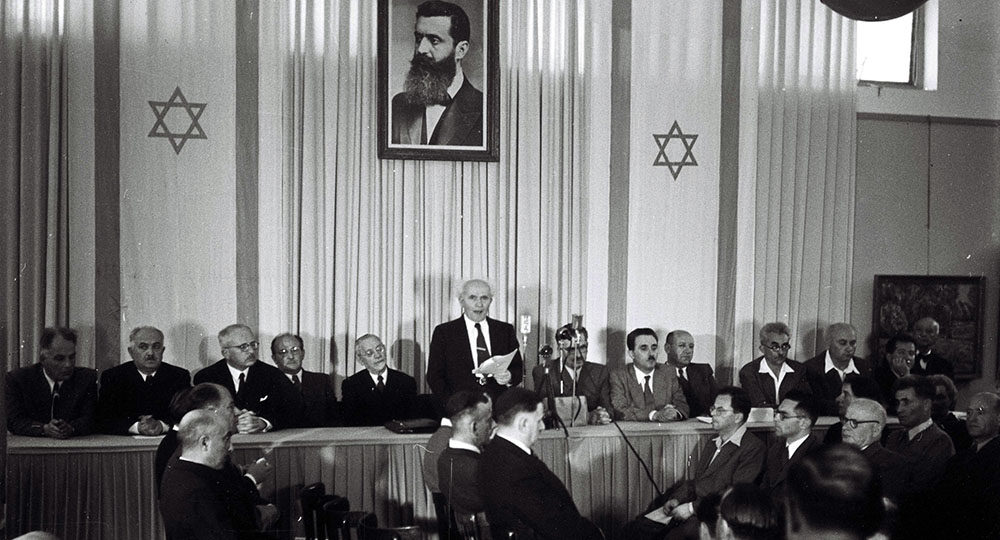

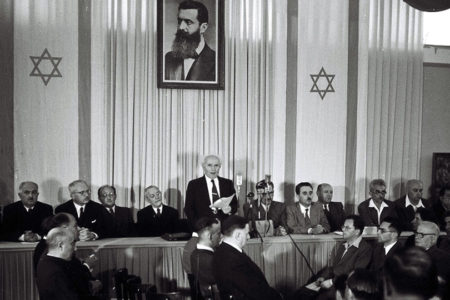
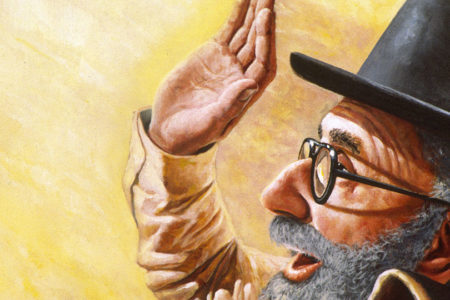
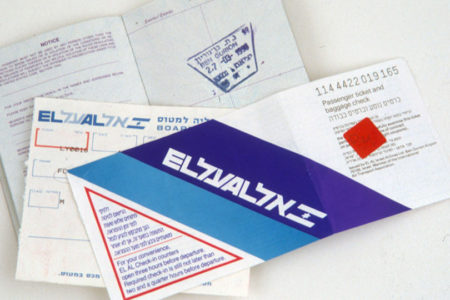

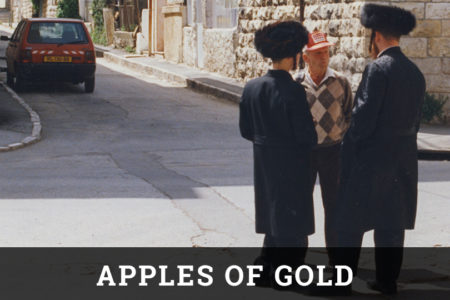


The Lord God is always faithful to His Word. The nation of Israel will never be destroyed. No nation or group of nations will never be able to destroy Israel. The Lord is yet to manifest His greatness on behalf of Israel His covenant people. God bless Israel and those who bless her.